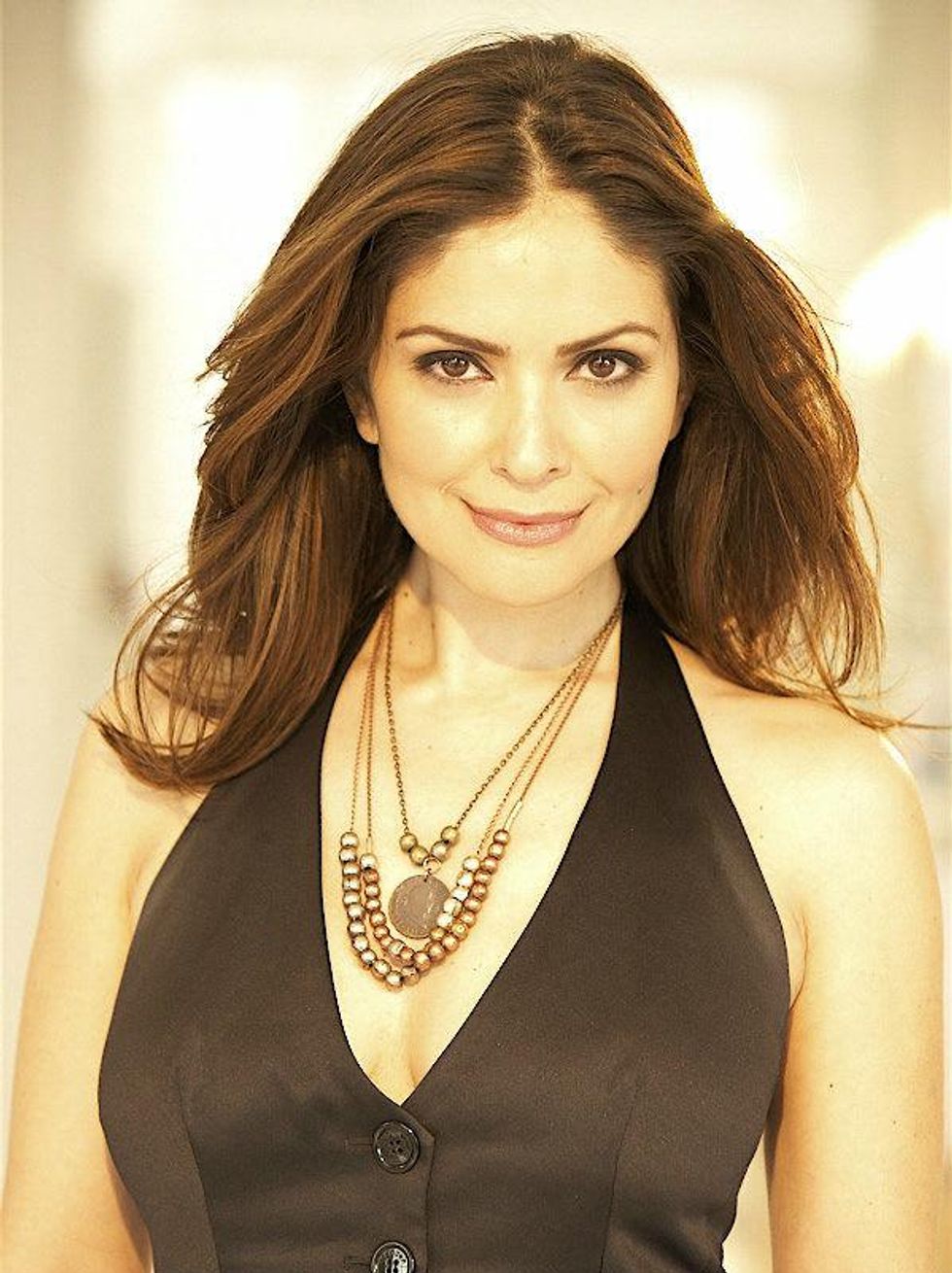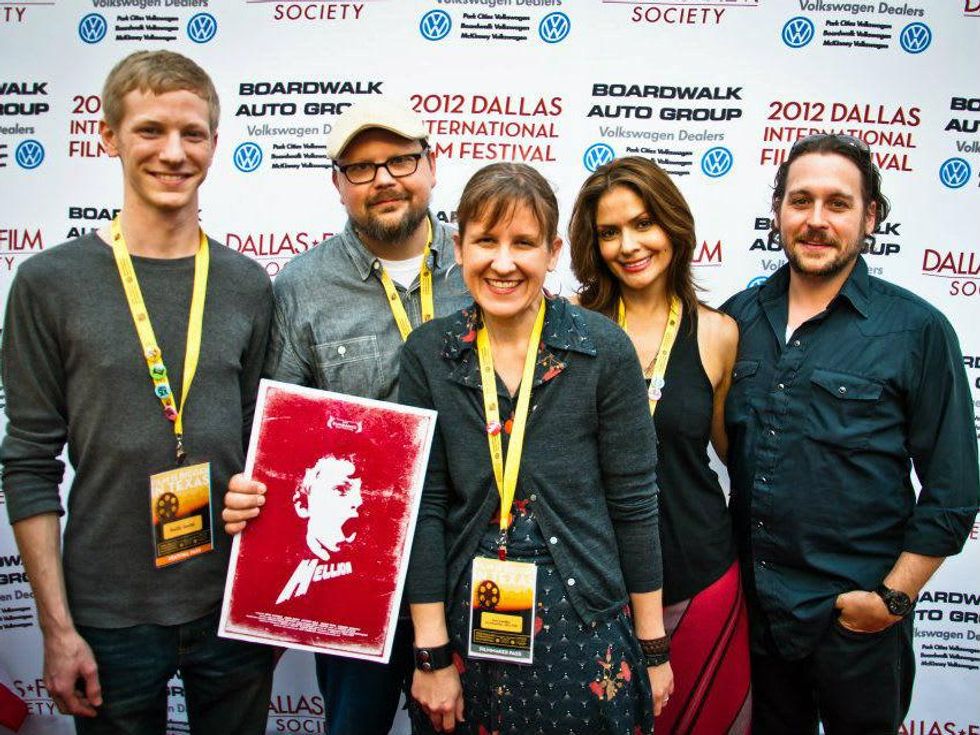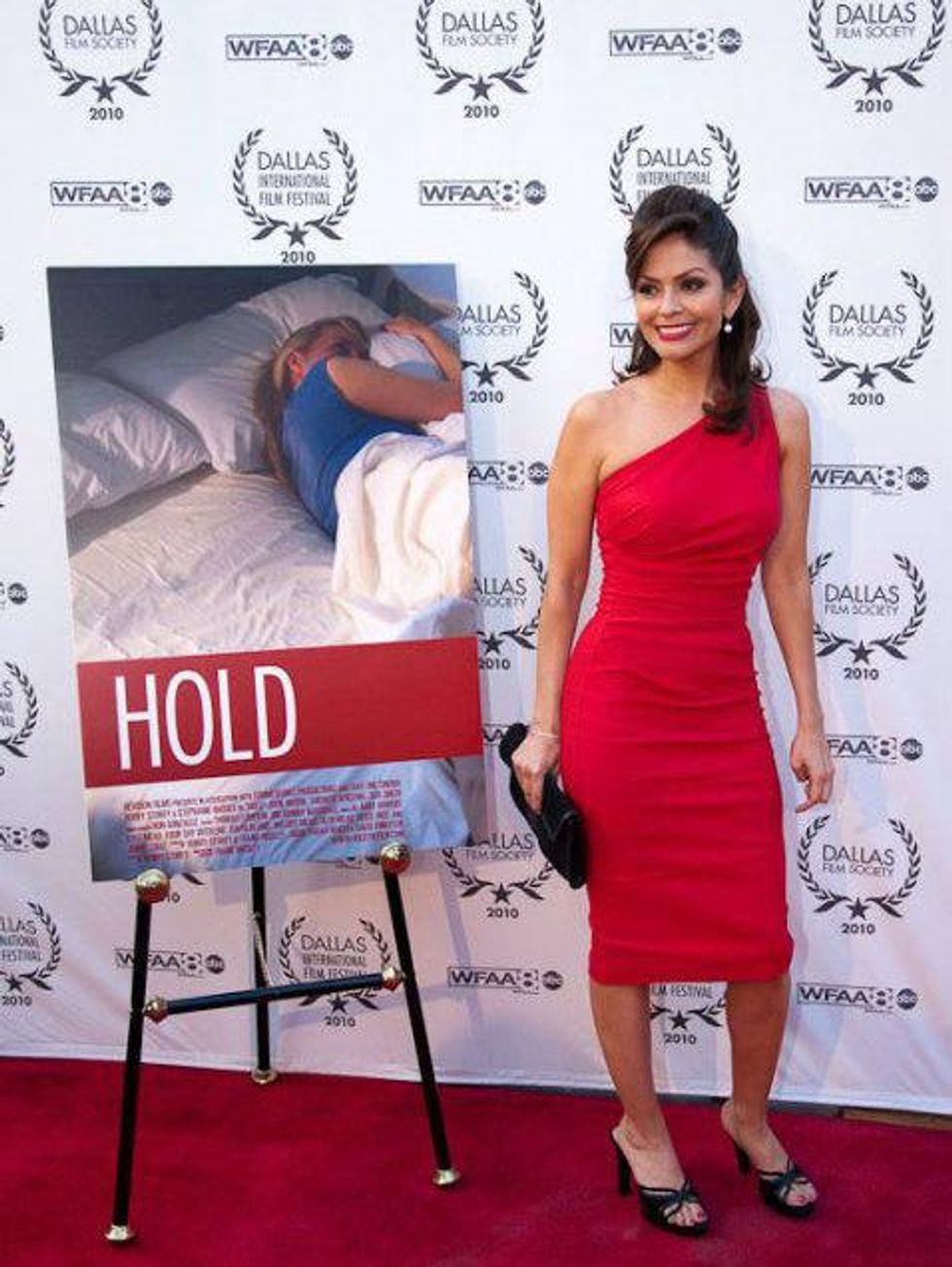Filmmaker Spotlight
Triple threat Farah White on why the Dallas film scene is like drama club for adults
You may recognize Farah White from her roles on screen, many of which she also produced. The most recent, Champion, was selected for the 2013 Dallas International Film Festival.
What you may not know is before this Dallasite became a prominent local film producer, she wrote and directed her first short film called The Last 2 Minutes of a Dream. White says she had the idea one night, wrote it the next day and began shooting the next weekend.
“It was cool, because there was already people excited to be a part of the project.”
“One of the things I think we all have in common is that we want to create things that will inspire feeling,” White says of her peers in the Dallas film community.
The film starred another Dallas filmmaker, Ash Christian (Mangus!, Petunia), as well as a young Frank Mosley in his first acting role; he was a drama student at the high school where the film was shot. David Lowery, a then-unknown recent graduate at the time, edited the film.
“It’s like an adult drama club,” White says. “One of the things I think we all have in common is that we want to create things that will inspire feeling. That’s one of the best aspects of storytelling.”
Since her first attempt at creating narrative through film, White has kept busy balancing her roles as an actress and producer, traveling around the country and managing her own production company, Femmewerks. But she’s eager to get back in the director’s seat.
“I was going to shoot a short in July, but I just got hired to produce and be in another feature called Daylight’s End here in Dallas beginning in August,” says White. “Things are constantly changing, and it’s usually your own projects that get put off for the bigger budget films, because it means more experience.”
White spent three years away in LA for a role in a pilot starring Sylvester Stallone. The show wasn’t picked up, but Dallas was happy to have her back in the local film fold.
“I think that [experience] made me realize and appreciate what Texas in general and DFW had to offer,” White says. “I had sent a couple of mayday emails to casting directors I knew here, and I had an agent before I even came back. She was already sending me jobs [in Dallas] when I was still in LA. Normally it’s the opposite.”
Through acting, White became interested in what was happening behind the camera. While on set, she listened and asked a lot of questions. She also credits her job experience outside of the film industry with helping her gain valuable skills. A job in the legal field taught her a lot about negotiation. “I think that in itself is a huge part of producing,” she says.
“I love when people just want to do it — you know, enough talking,” White says.
In a smaller market like Dallas, many of the films are done on little to no budget, so part of that negotiation process involves things other than money. “That’s what’s nice about the industry here in Dallas,” says White. “When there’s not much of a budget you do it as a trade, or a contingency where they know they’re going to get something on your next film.”
This unspoken agreement is what allows the film community in Dallas to thrive, as filmmakers choose passion projects over the bottom line. White was faced with this challenge early on when she decided to produce Traveling, by Dallas filmmaker Rachel Shepard.
“The film was complete, but every bit of audio was unusable,” White says. “We basically had to find a post-production company that would help us correct all of the sound, which would normally cost more than the film itself.”
“A lot of people were kind of shocked that I took it on because they thought it was too much work, but I’m glad I did it. Rachel’s a great filmmaker who really has a distinct voice. I love when people just want to do it — you know, enough talking.”
The pair recently finished shooting Shepard’s latest short film, About Mom and Dad. White, who produced it, also plays the mom in the short.
White admits that from an outsider’s perspective, the filmmaking community can seem like a bit of a boys’ club, but with women like her eager to tell their stories — and to help other women get their stories heard — that stereotype is changing.
“The fact that Sundance had pretty much half its programming with female directors set a good, strong statement that it doesn’t have to just be a male-dominated industry,” White says. “I saw an article the other day that said 90 percent of films are men’s stories. I never stopped to think of it that way, but it’s nice to know that change is happening.”



